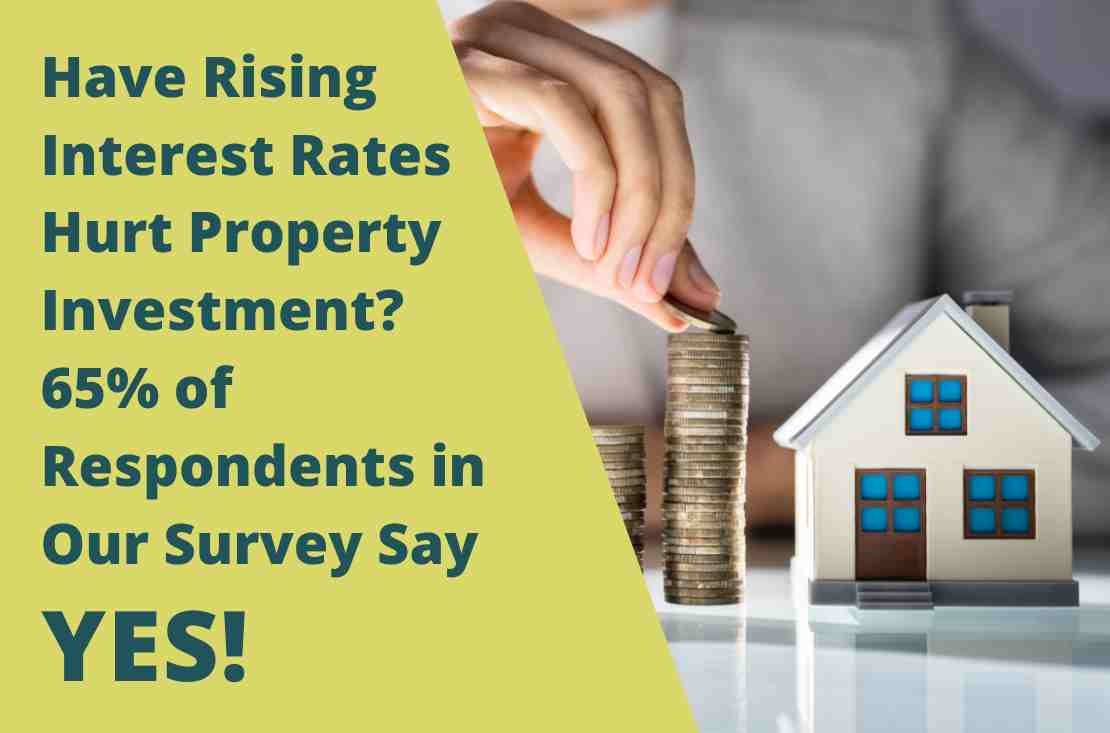It seems the private rented sector simply cannot catch a break.
Until recently, the inexorable rise in the Bank of England (BoE) base-rate has been widely reported as having a seriously damaging impact on the buy-to-let (BTL) market, making property investment much less attractive.
We asked our followers on social media whether or not this reflected their experience and 65% of them responded that it was indeed true.
It is however the case that BTL can be less attractive than it was and still outperform alternative forms of investment.
So this month, we thought we should use our experience as property professionals and compare BTL to the other forms of investment out there to see whether, despite everything, it still represents a good investment.
Let’s explore the truth behind the assertion that rising interest rates have hurt property investment.

Where we are now
In 2022, average BTL mortgage rates were 3.47%. By October 2023, the average fixed rate had reached 6.35%. That’s a substantial difference, and not a favourable one for property investors.
With an BTL mortgage on £195,000 based on an expected rental income of £1000 pcm, at 3.47%, you’d be looking at repayments of £973 pcm. At 6.35%, that repayment rises to £1298 pcm.
Taking only the mortgage into account, a modest profit of £27 becomes a loss of £298. It also assumes that the landlord hasn’t increased the rent to reflect their increasing costs.
The trick clearly is to balance the finance costs against rental income, and where you buy can have as much of an effect on that as how much you pay.
But that isn’t the whole story. The property above, with a valuation of £259,000 at purchase, has added on average 6.9% value over that last 12 months – so £17,871. And that’s during a period of slowing house price increases.

Comparing investments
How do alternative investments compare to property investment? Will they deliver better results? Are they ‘safer’?
Stock market
If you had invested the same £259,000 in the stock market, would you have fared better? You might. 10% annual return is generally seen as a good return on investment (ROI), but like property values, this can vary enormously.
It also depends on your view of risk – high risk investments can deliver high ROI, but can also go badly awry. ‘Secure’ investments such as government bonds are seen as safer but less exciting as they deliver well below that 10% value.
Just like property investment, it’s complicated. There are fees to take into account and these come out of your investment, affecting the final result. Markets can react dramatically to stimuli – the ill-fated mini-budget for instance.
Stocks & shares ISA
A popular way of investing in stocks and shares in the UK, Individual Savings Accounts (ISA) allow you to invest your money in stocks and shares while paying no tax on your withdrawals from the fund.
The downside is that you can only invest a maximum of £20,000 per annum and you can open one ISA per year. Returns can be excellent but as they are based on the stock market, they can vary year-on-year.
Returns ranging from 13.5% to -3.27% over the space of three years may not be a recipe for a calm life!

Savings
Low interest rates are the bane of savings accounts, and while rising base rates have helped savers, inflation has been wiping out any gains. Since the financial crisis heralded the era of ultra low interest rates, savers have struggled.
Mostly they hoped to just stay ahead of inflation, a forlorn hope for some years. Unless there is a substantial fall in inflation, without a cut in base rates, which is unlikely, savers will still be playing catch-up.
Pensions
Investing in a pension fund is something that most of us are familiar with, even if we don’t pay too much attention to what’s actually happening.
By and large, pension funds perform quite well, averaging around 11% for the last decade. It’s worth noting however that for the last five years, the average return has been only 8%.
Advice from the property pros

All forms of investment carry risk, and property investment is no different. It’s also true that all forms of investment are subject to external economic influences – the Crash of 2008 and the COVID pandemic for instance.
So have rising interest rates hurt property investment? To an extent, yes they have. If you’re dependent on borrowing to finance your investment, it’s inevitable that increasing interest rates will affect the profitability of your property.
For some landlords, this will be too much and they will choose to quit the market. For others they will have to do some careful re-calculation and possibly consider raising rents to maintain a positive cashflow.
Like other investments, property investments generally perform better over the long term. This allows the investor to weather the fluctuations in the market and while we wouldn’t suggest property is a sure bet, it has proved to be a reliable choice.
In summary…
These are tough times for all investments and there is a lot of change happening in the private rented sector which compounds the uncertainty surrounding the viability of buy-to-let as a worthwhile investment.
That said, the demand for quality rented accommodation continues to far outstrip demand, so some careful research before committing could pay off handsomely.
This is where we can help – we have decades of experience in the buy-to-let market and we can help you work out what best suits your particular needs.
Sticking a pin into a sheet of paper is no way to choose an investment, but with advice and knowledge to hand you can find the property which is right for you.

Written by Ross MacDonald, Director of Sales & Cofounder of Portolio
Get in touch on 07388 361 564 or email to [email protected]


Comments